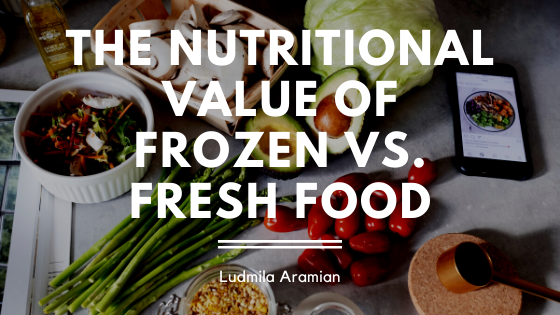There is an ongoing debate as to whether food is more nutritious if it is fresh or frozen. In actuality, the answer is neither. Experts state that the time when food has the most nutritional value in its raw form.
The minute food begins the process from a crop to store shelves, it begins to lose some nutritional value. The loss in nutritional value happens because it no longer has access to what was giving it the nutrition it needed. They must use the nutrients they already have inside of them.
When people keep fruit and vegetables in their refrigerator, it helps maintain the nutritional content of it. Though nutritional content diminishes, it does so at a slower pace than food that isn’t refrigerated. Some food items lose their nutritional value quicker than others.
A food study performed in 2007 determined that spinach only retains its Vitamin C for one week at room temperature. While unrefrigerated spinach loses all of its Vitamin C, refrigerating it helps retain 75% over a week. The reason why spinach loses its vitamins so quickly is that it is so thin. Moisture escapes spinach quicker than it would escape a harder vegetable, like carrots. In comparison, one week of keeping carrots outside the refrigerator results in a 27% reduction in Vitamin C content.
The study also found that the best way to preserve the level of Vitamin C in most produce products is to keep it frozen until ready to use. Frozen spinach will only have its supply of Vitamin C depleted by 30%. When foods are kept frozen, it puts a stop to oxidation, which is what makes fruits and vegetables turn brown over time.
A new idea within the food industry is to keep massive amounts of produce frozen. Whereas in past decades, the process of harvesting and freezing vegetables such as peas would have taken many days, in today’s world, it’s done in a matter of hours.
Since produce loses its nutrients so quickly, it is now more critical than ever that they quickly move from the harvesting process to being stocked in grocery stores. Before freezing any produce, it is now quickly heated so that storing it doesn’t fade its color, making it look unappealing to shoppers.

